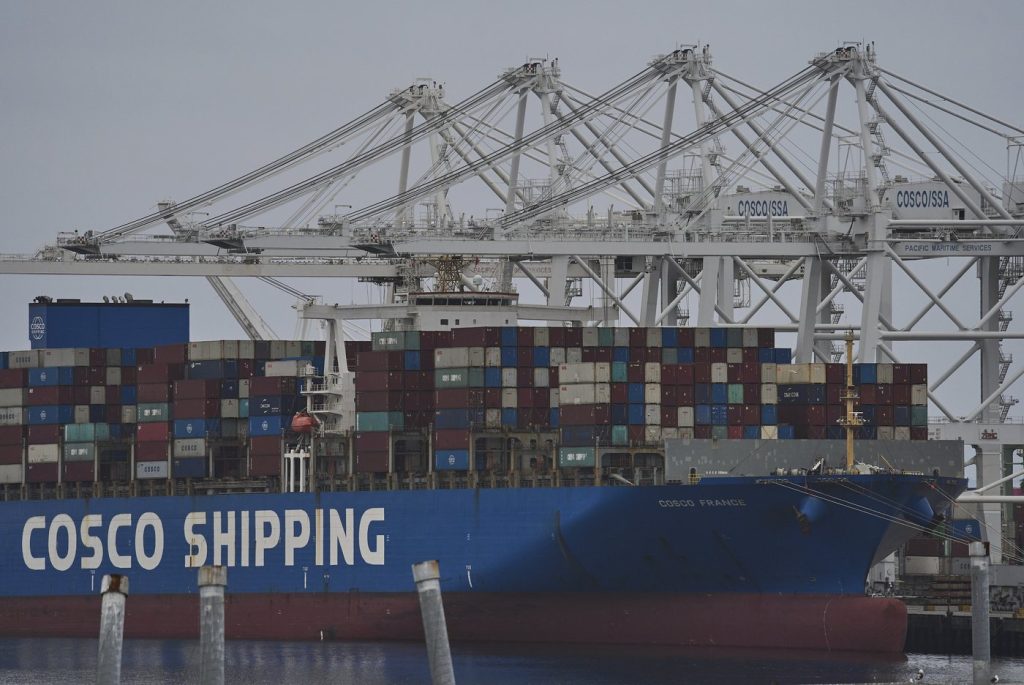PARIS (AP) – Europe and the United States are currently engaging in negotiations in Paris to address a significant tariff dispute that has implications for the global economy. The talks, which are being led by the European Union's chief trade negotiator, Maroš Šefčovič, and U.S. Trade Representative Jamieson Greer, took place on the sidelines of a meeting organized by the Organization for Economic Cooperation and Development (OECD).
Šefčovič expressed optimism through a social media post, stating, "We’re advancing in the right direction at pace and staying in close contact to maintain the momentum," alongside a photograph of his handshake with Greer. Despite this advancement, both parties are not expected to finalize a substantive trade agreement during this meeting, as they face profound issues that require more time to resolve.
One of the key points of contention is the persistent trade deficit between the U.S. and the European Union, which reached a record high of $161 billion last year, according to the U.S. Commerce Department. Former President Donald Trump often criticized this deficit, attributing it to what he perceives as unfair trade practices on the part of the EU. He has particularly targeted the EU’s 10% tariff on imported cars, while the U.S. raised its tariff from 2.5% to 25% in April.
In response to the unexpected tariffs on steel announced by the Trump administration, which have unsettled global markets and complicated broader negotiations, the EU declared its readiness to implement countermeasures against U.S. products. An offer from the EU to establish a "zero for zero" arrangement—eliminating tariffs on industrial goods, including automobiles—remains on the table, despite being rejected by Trump.
The EU is considering increasing its purchases of liquefied natural gas and defense items from the U.S. and may also lower tariffs on cars. However, it appears unlikely to concede on abolishing value-added tax (VAT), similar to a sales tax, or on issues regarding American beef imports. French trade minister Laurent Saint-Martin emphasized the ongoing discussions and negotiations, indicating that Europe is prepared for countermeasures should these talks fail.
Greta Peisch, a former general counsel for the U.S. trade representative under the Biden administration, noted that the "zero-for-zero" proposal might offer a pathway for progress if the Trump administration is seeking justification to avoid imposing further tariffs on the EU. However, she raised doubts about the U.S.’s motivation to finalize a deal with Europe, given Trump’s longstanding grievances regarding EU trade practices.
Trump has long expressed opposition to VATs, viewing them as unfair protectionism because they apply to U.S. exports. However, since VATs are set at the national level rather than by the EU and are applicable to both domestic and imported products, they are not typically categorized as trade barriers. Thus, it is improbable that EU governments will alter their tax frameworks to satisfy U.S. demands.
Similarly, European officials are likely to resist U.S. requests to eliminate food and safety regulations, which the U.S. considers trade barriers. Such regulations encompass bans on hormone-treated beef, chlorinated chicken, and genetically modified organisms (GMOs). Reinsch remarked that differences regarding such topics reflect fundamental regulatory choices made by each country, with the EU prioritizing public health and safety while the U.S. often views these as protectionist measures.
This ongoing tension exemplifies the complex and often contentious nature of international trade negotiations, where the differing priorities and regulatory frameworks of the involved parties can significantly impede progress.










